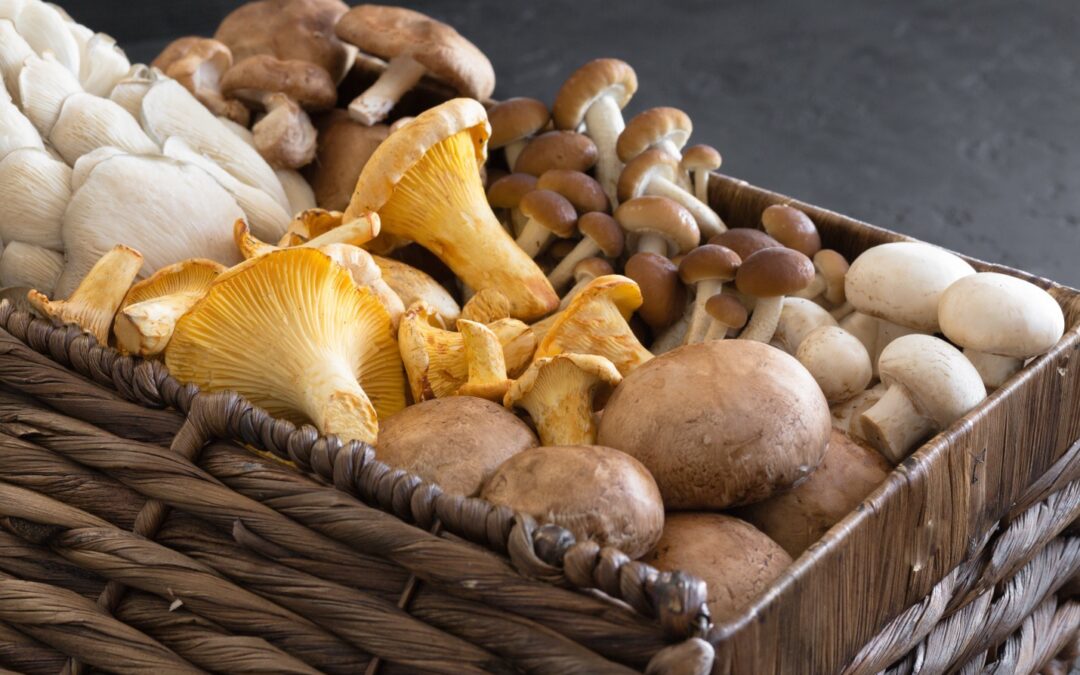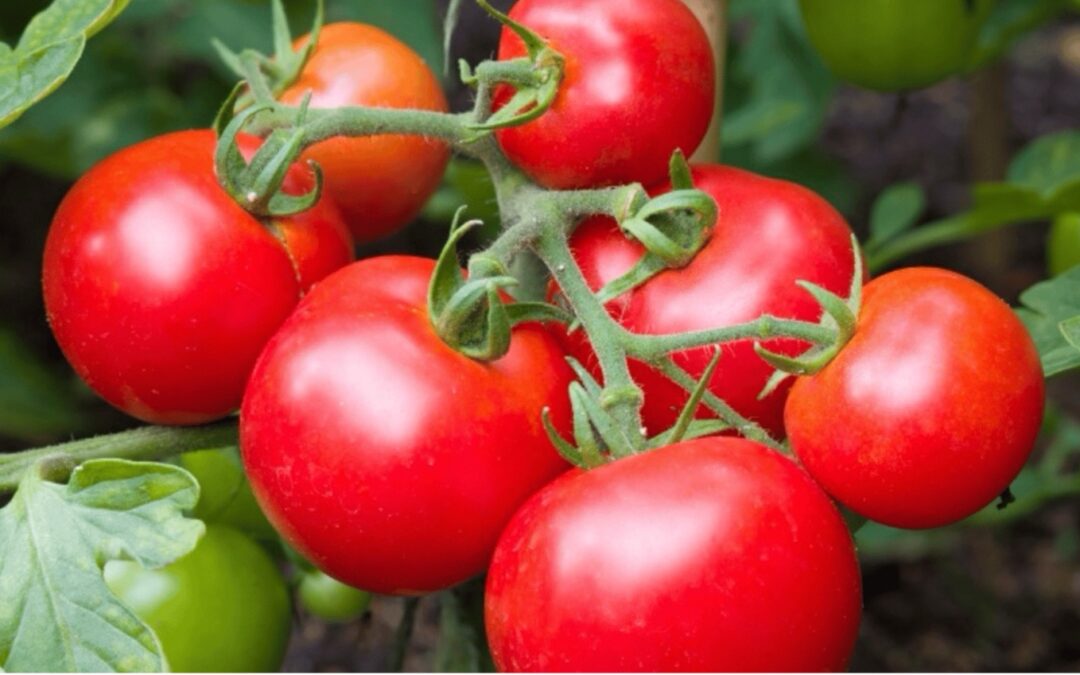
The Secret Power of Mushrooms: Nature’s Gift for Body and Mind
Not long ago, mushrooms were seen as little more than a pizza topping or a peculiar vegetable that people either loved or refused to touch. Yet if you delve deeper into history—beyond the fluorescent grocery aisles and sauté pans—you’ll uncover something extraordinary. Mushrooms have always been much more than mere food. They are ancient healers, powerful allies for human health, and living proof that sometimes the smallest, humblest things hold the greatest power.
For centuries, indigenous cultures around the world revered mushrooms not only as nourishment but also as sacred medicine. In traditional Chinese medicine, mushrooms like reishi and shiitake were viewed as treasures of longevity. In Siberia and parts of Central America, certain fungi were honored in spiritual rituals. Now, after decades of being overlooked by Western science, mushrooms are stepping back into the spotlight—and modern research is confirming what ancient healers already knew.
Mushrooms aren’t just healthy; they have the potential to transform human health on every level—physical, mental, and even emotional.
When I first began studying the therapeutic properties of mushrooms, I was amazed. What other organism could simultaneously support immune function, regulate inflammation, balance mood, and even enhance brain plasticity? The more I learned, the more respect I developed for this quiet kingdom of life that thrives in the shaded, hidden parts of the earth, tirelessly breaking down matter and recycling nutrients to sustain all other living beings.
Mushrooms, it turns out, serve as the missing link for many people seeking true, holistic health.
From the cellular level, mushrooms possess an astonishing capacity to support immunity. Beta-glucans, naturally occurring polysaccharides found in mushrooms like maitake, shiitake, and turkey tail, stimulate the body’s innate immune system. They serve as gentle teachers for our white blood cells, enhancing their ability to recognize and respond to invaders while modulating excessive immune reactions that can lead to chronic inflammation. Unlike pharmaceuticals that often blunt immune responses in a one-size-fits-all manner, mushrooms work in harmony with the body’s intelligence, creating balance where there was once chaos.
I’ve observed patients grappling with frequent infections, autoimmune conditions, and slow recovery from illness discover renewed strength after incorporating medicinal mushrooms into their routine. This is not a placebo. It’s biochemistry—beautiful, ancient biochemistry that humans have co-evolved with for millennia.
Beyond immune health, mushrooms offer a profound gift: anti-inflammatory power. Chronic inflammation is now recognized as the root cause of most modern diseases, including heart disease, diabetes, depression, and dementia. Mushrooms like reishi and chaga contain potent antioxidant compounds that neutralize oxidative stress, protecting cells from damage and slowing the silent fire of inflammation that undermines health over time.
This protective effect is not only physical but also mental. Chronic inflammation doesn’t just damage arteries and organs; it also impacts the brain. Neuroinflammation is a key player in mood disorders, cognitive decline, and even neurodegenerative diseases like Alzheimer’s and Parkinson’s. Mushrooms, with their anti-inflammatory and antioxidant arsenal, provide a line of defense that modern medicine is only beginning to understand.
But perhaps the most exciting frontier in mushroom science today lies in their effects on mental health and brain function.
Research into psilocybin, the active compound in so-called “magic mushrooms,” is shaking the very foundations of psychiatry. Controlled clinical studies have shown that psilocybin-assisted therapy can catalyze profound healing in people suffering from treatment-resistant depression, PTSD, addiction, and existential distress related to terminal illness. One or two guided sessions with psilocybin, in the appropriate therapeutic setting, can create lasting shifts in mood, perspective, and emotional resilience that decades of conventional treatment have sometimes failed to achieve (Carhart-Harris et al., 2016; Griffiths et al., 2016).
The mechanism behind this transformation is still being unraveled, but early findings suggest that psilocybin increases neuroplasticity—the brain’s ability to form new connections and reorganize itself. It also quiets the Default Mode Network, the part of the brain associated with self-referential thinking, rumination, and anxiety. In simple terms, mushrooms help break the chains of entrenched thought patterns and open a window to healing.
Even non-psychedelic mushrooms like lion’s mane have shown remarkable promise in supporting cognitive function. Studies reveal that lion’s mane stimulates the production of nerve growth factor (NGF), a protein essential for the growth, maintenance, and survival of neurons (Mori et al., 2009). Regular use of lion’s mane has been linked to improved memory, focus, and mental clarity, making it a natural choice for those seeking to preserve or enhance brain health as they age.
Lion’s mane is known to assist individuals experiencing cognitive decline, particularly when paired with a lifestyle that incorporates brain-supportive nutrition, physical activity, stress reduction, and community engagement. When the brain is nurtured from various angles, the outcomes can be remarkable.
And let’s not forget emotional health. Mushrooms like reishi, often called the “mushroom of immortality,” have been used for centuries not only to support longevity but also to promote emotional equilibrium. Reishi appears to regulate the HPA axis, the central stress response system, and calm the mind without sedation. In a world where anxiety and burnout are epidemic, reishi offers a grounded, sustainable path to inner peace.
Of course, not all mushrooms are created equal. The world of fungi is vast and varied; while some species offer powerful healing properties, others can be toxic or hallucinogenic. Respecting proper sourcing, preparation, and dosage is crucial. Wild mushrooms should never be consumed without expert identification. Even supplements must be chosen carefully, as quality can vary widely between brands.
When selecting mushroom products, it’s important to look for full-spectrum extracts that include fruiting bodies (the visible part of the mushroom) rather than just mycelium (the root-like network). Fruiting bodies generally contain higher concentrations of beneficial compounds. When possible, seek organic certification and be cautious of products that do not disclose extraction methods or polysaccharide content.
As powerful as mushrooms are, they are not magic bullets. They function best as part of a holistic lifestyle that respects the fundamental pillars of health: real food, movement, rest, meaningful connection, and time in nature. Think of mushrooms as wise, steady companions on your journey toward wellness, rather than as shortcuts.
It’s also worth noting that while mushrooms are remarkably safe for most people, there can be exceptions. Individuals with certain autoimmune diseases, blood clotting disorders, or allergies should consult a knowledgeable healthcare provider before adding medicinal mushrooms to their regimen.
Despite these caveats, the safety profile of most edible and medicinal mushrooms is exceptional, especially when compared to many synthetic pharmaceuticals. In a time when many are seeking gentler, more sustainable ways to care for themselves, mushrooms provide a bridge between modern science and ancestral wisdom.
Mushrooms represent more than a health supplement. They symbolize an entire philosophy of healing that acknowledges the interconnectedness of all life, the intelligence of the natural world, and the remarkable resilience of the human body when given the right support.
They teach us patience. Mushrooms grow in darkness, in quiet, in humility. They do not shout for attention; yet without them, forests would collapse. They remind us that true health is not about domination or quick fixes but rather about working in harmony with life’s deeper currents.
Incorporating mushrooms into your daily routine doesn’t have to be complicated. It can be as simple as brewing a morning tea with reishi and chaga, blending lion’s mane powder into your smoothie, or taking a high-quality capsule after dinner. It can also mean savoring the rich umami of shiitake in your stir-fry or discovering the earthy complexity of maitake in a hearty soup.
Over time, the relationship deepens. You begin to feel it—not in dramatic fireworks, but through subtle shifts. A steadier mood. A stronger immune response. Sharper focus. Deeper sleep. Greater resilience in the face of life’s inevitable stresses.
This is the true power of mushrooms: not instant transformation, but a gradual, profound rebalancing. It is a restoration of what was always meant to be—strength, vitality, clarity, peace.
In a world that often feels fragmented and overwhelming, mushrooms offer a reminder that healing is not about escaping life, but about rooting more deeply into it. They are nature’s gentle whisper, urging us to slow down, reconnect, and trust the intelligence of our own bodies.
The next time you see a mushroom quietly growing at the base of a tree or popping up after a rainstorm, take a moment to honor it. Within that small, humble form lies a secret as old as the earth itself: the power to heal, regenerate, and thrive.
And perhaps, in embracing mushrooms, we can learn to do the same.
References:
- Carhart-Harris, R. L., et al. (2016). Psilocybin with psychological support for treatment-resistant depression: An open-label feasibility study. The Lancet Psychiatry, 3(7), 619-627. https://doi.org/10.1016/S2215-0366(16)30065-7
- Griffiths, R. R., et al. (2016). Psilocybin produces substantial and sustained decreases in depression and anxiety in patients with life-threatening cancer: A randomized double-blind trial. Journal of Psychopharmacology, 30(12), 1181-1197. https://doi.org/10.1177/0269881116675513
- Mori, K., et al. (2009). Nerve growth factor-inducing activity of Hericium erinaceus in 1321N1 human astrocytoma cells. Biological & Pharmaceutical Bulletin, 32(12), 2102-2106. https://doi.org/10.1248/bpb.32.2102

